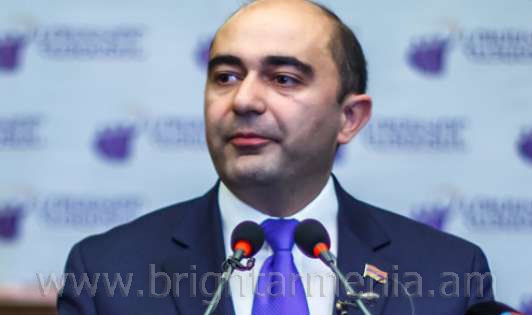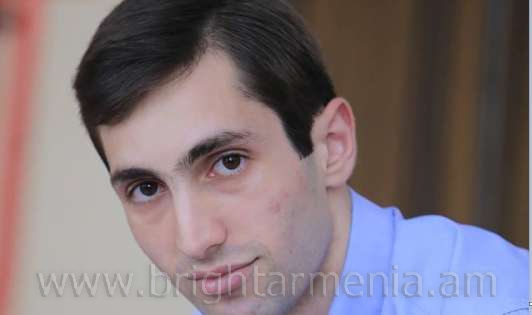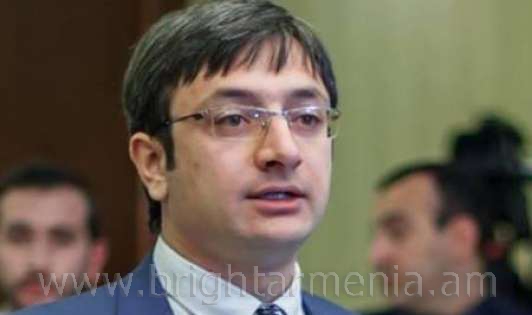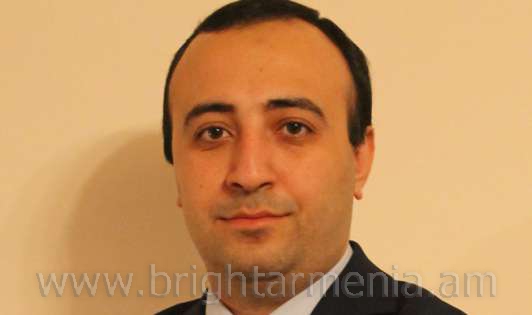The 2nd Congress of the Bright Armenia party, which took place on February 17, 2018, adopted the Rule of law Manifest, which will be a key reference point for the upcoming activities of the party. The activities of the Bright Armenia party will be aimed at implementing the provisions of the Manifest, which will make them key factors in the public and political life of Armenia.
The Rule of law Manifest is a logical continuation of the party’s program adopted at the founding congress of the Bright Armenia party on December 12, 2015, while being an important component of the party’s program and ideological complex activities..
In the light of the main problems facing the Republic of Armenia, the Bright Armenia party states that the key guarantee of the development of Armenia, long-term security and common prosperity is the construction of a European model state. The establishment of the rule of law is the cornerstone and guarantee of development and the establishment of democracy. This Manifest proclaims the main provisions that should lead to the establishment of the rule of law in Armenia and the establishment of a liberal democracy.
In particular:
-
Restriction of executive powers
According to the principle of the rule of law, the executive branch and officials are subject to the law and are accountable to the law. There is a constitutional and institutional toolkit that creates balancing mechanisms, limiting the powers of the executive and officials and ensuring their accountability to the public. The branches of power are redistributed in such a way that none of them can have uncontrolled power. Effective oversight of the executive branch is exercised by legislative and judicial bodies, independent oversight bodies, civil society institutions and the media. Thus, it is possible to establish control over the activities of the executive and other officials, as well as their accountability. This gives the authority to constantly monitor the executive branch and bring officials to justice. As a result of the effective application of the principle of the rule of law, reciprocity and balance, the change of power is carried out exclusively in accordance with the letter and spirit of the law.
-
Fighting corruption
One of the main features of the state’s rule of law is the elimination of corruption. It is well known that the abuse of power and the authority provided by law by representatives of legislative, executive and judicial branches might lead to the rooting of three main types of corruption: bribery, unlawful interference with public or private interest, illegal possession of public or other resources. In the case of the establishment of the rule of law, officials should not, in exercising their authority, abuse their official position for personal gain.
-
Open government
One of the key manifestations of the rule of law is an open government that freely provides the necessary information, provides citizens with the appropriate tools to ensure government accountability and promotes citizen participation in the development of public policy. Open government implies public and specific laws, the right of citizens to speak freely, and effective appeal mechanisms available to citizens.
-
Basic rights
Under the rule of law, fundamental rights must in fact be guaranteed. The rule of law guarantees the rights enshrined in the European Convention for the Protection of Human Rights and Freedoms, including the right to life, the prohibition of torture and ill-treatment, the prohibition of slavery and forced labor, the right to liberty and security, the right to a fair trial and the right to effective judicial protection . the right to respect for private and family life, freedom of thought, conscience and religion, freedom of expression, freedom of assembly, association, marriage, non-discrimination, property rights, electoral rights, protection of basic labor rights, other rights and freedoms guaranteed by the RA Constitution and international treaties ratified by the Republic of Armenia.
-
Public order and security
One of the fundamental components of the rule of law is to ensure public order and security. This ensures the safety of the person and property. Ensuring security is one of the main functions of a state prioritizing the rule of law and simultaneously is a precondition for rights and freedoms triggering the rule of law. There are three main components that contribute to the establishment of public order and security: effective crime surveillance, the elimination of civil conflicts, the elimination of violence during public rallies and rallies.
-
Government coercion
Sustainable rule of law implies some regulatory coercion. Necessary and reasonable coercion means that it is not only carried out without public or private intervention, but also that administrative legal processes are carried out in a timely manner and without unreasonable delays in maintaining due process. The rule of law also implies that a person does not lose his property without adequate fair compensation when the latter’s property is recognized as public interest.
-
Civil Justice
The execution of justice in civil cases is a prerequisite for the rule of law. This means that citizens can solve their problems peacefully and efficiently through official justice authorities. Effective implementation of civil justice is required to be accessible and free from discrimination, corruption, and unnecessary interference by government bodies. Civil law justice should be exercised without undue delay, and alternative dispute resolution mechanisms should be accessible, impartial and effective.
-
Criminal Justice
An effective criminal justice system is one of the key components of the rule of law. This is a natural problem solving and complaint filing mechanism against individuals committed public offense. An effective criminal justice system can successfully conduct impartial preliminary and judicial investigations of crimes free from discrimination, corruption, and unnecessary interference by public authorities, while ensuring the rights of the accused and the victim are protected.
The above factors are key to establishing the rule of law, and ensuring the rule of law is a fundamental guarantee for building a democratic and free state. In fact, after making changes to the constitution, the system of distribution of power in Armenia has not changed, the principle “winner takes everything while loser gets nothing” still works, thus the authorities are involved in imitative activities. There were no positive changes, as a result of which the state is not moving forward.
Formal constitutional decisions in the light of recent legislation remain imperfect and illusory in reality. As a result of constitutional changes, Armenia formally became a parliamentary republic, but the actual redistribution of power did not occur.
Significant restrictions were imposed on the rights and functions of the opposition, as a result of which the ruling majority became uncontrollable. A striking example of this was the artificial reduction in the number of standing committees of the National Assembly, when the opposition was deprived of the right to chair the committee.
In fact, a strong presidential power in Armenia is being replaced by the strong power of the prime minister, and the disproportionately strong power of one person is created under the guise of parliamentary control. Moreover, the powers vested in the new prime minister may outweigh the powers that the president currently has. To achieve this goal, a number of laws have been amended, which are not provided for by the RA Constitution. In essence, the mentioned amendments unconstitutionally modify the Constitution of RA to enlarge the powers of the political majority while eliminating the minor opportunities of imposing checks and balances on the political majority.
Moreover, at the level of the aforementioned laws, such changes are made that, in effect, make changes to the Constitution, reducing the president’s lesser powers, actually demeaning the president’s institution and depriving him of the quality of an impartial arbiter, as stipulated by the constitution.
This destroys the whole meaning and logic of constitutional changes, creating a quasi-parliamentary republic with power. Such uncontrolled powers of the executive branch will further increase its influence on the judicial system and parliament, which will fundamentally violate the already fragile and illusory balance between the branches of government. This process creates a serious problem for creating a healthy political system and developing democracy in Armenia, becoming a serious threat to our state.
The Bright Armenia Party calls for the full implementation of the Constitution in Armenia, which will create real and effective checks and balances. Without political equilibrium, it will be impossible to cure the sore political system of Armenia and develop the country's economy and state institutions, which are just as important for Armenia as the current challenges. The implementation of the latter is possible if we apply the basic principles of the Rule of Law Manifesto we proclaimed. Therefore, the activities of the Bright Armenia party will henceforth be aimed at the full realization of the goals reflected in the Manifest, in the name of the freedom of the citizen, the sovereign and democratic Republic of Armenia.
The Rule of law Manifest is a logical continuation of the party's program, adopted at the founding congress of the Bright Armenia party on December 12, 2015, and becomes a key component of the program and ideological complex of the party’s activities. The Manifest was adopted at the 2nd congress of the Bright Armenia party on February 17, 2018.
The Rule of Law Manifesto is based on standards developed by the World Justice Project, which were localized and aligned with the reality and challenges of Armenia.




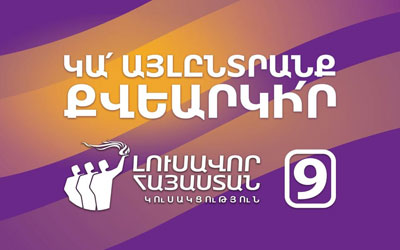
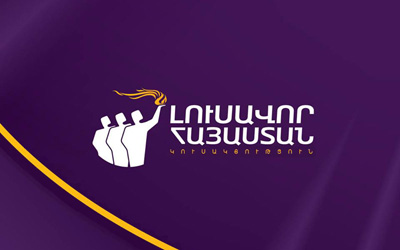
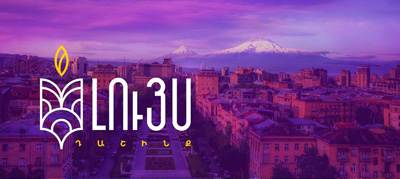
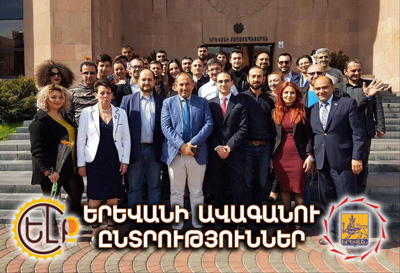
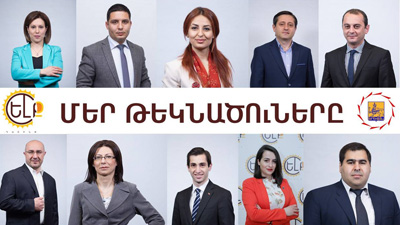
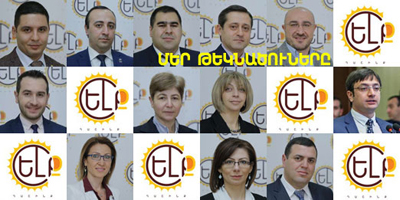


 14192588_1235055369859845_5972317306482858817_n.jpg)
